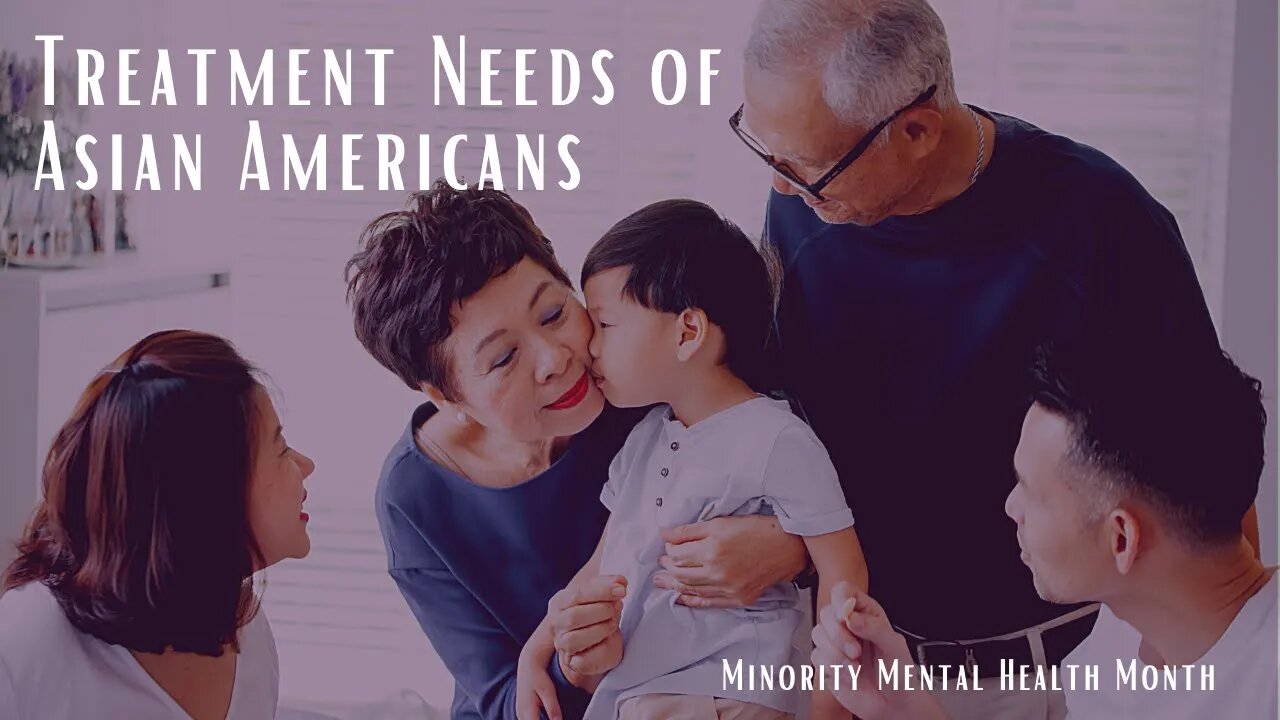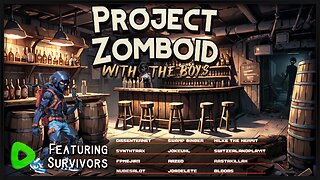Premium Only Content

Meeting the Mental Health Needs of Asian People
Dr. Dawn-Elise Snipes is a Licensed Professional Counselor and Qualified Clinical Supervisor. She received her PhD in Mental Health Counseling from the University of Florida in 2002. In addition to being a practicing clinician, she has provided training to counselors, social workers, nurses and case managers internationally since 2006 through AllCEUs.com Please SUBSCRIBE and click the BELL to be notified when we release new videos and when Dr. Dawn Elise Snipes is going live each month. Access additional benefits by JOINING here https://www.youtube.com/channel/UCAE3JJi8tX7gfhZEXCUGd_A/join
CEUs are available for this presentation at https://www.allceus.com/member/cart/index/product/id/42/c/
Want to listen to it as a podcast instead? Subscribe to Counselor Toolbox Podcast https://pod.link/1120947649
Improving Cultural Competence Working with Asian People
Instructor: Dr. Dawn-Elise Snipes, PhD
Objectives
- Learn about Asian cultures, traditions and values as they relate to mental health
- Learn about communication styles to help the counselor more effectively communicate with culturally different clients
- Explore health disparities
- Explore appropriate approaches to counseling
General Information
- Asian Americans have a 17.30 percent overall lifetime rate of any psychiatric disorder and a 9.19 percent 12-month rate, yet Asian Americans are three times less likely to seek mental health services than Whites
- Cultural factors, such as language, age, gender, and others, can influence the mental health of Asians, particularly immigrants
- Asians place great value on the family as a unit. Each individual has a clearly defined role and position in the family hierarchy and is expected to function within that role, submitting to the larger needs of the family.
- Social stigma, shame, and saving face often prevent Asians from seeking behavioral health care
- Asian patients are likely to express psychological distress as physical complaints
General cont…
- Language Knowledge of English is one of the most important factors influencing access to care.
- Level of acculturation Typically, it takes three generations for immigrants to fully adopt the lifestyle of the dominant culture.
- Age In general, the younger people are when they migrate, the more readily they adapt
- Gender Historically, men have acculturated more rapidly than women
- Occupational Issues: Sometimes, women earn more than men, thereby disrupting family expectations and traditional values
Tips for Providers
- Checking for understanding is critical. It is all too easy to misinterpret a common gesture as agreement or understanding when the patient is actually confused or even resistant to a diagnosis/treatment.
- Asian patients/families will often be reluctant to complain or ask for clarification
- Avoiding the use of yes/no questions is very important.
- Establish the professional’s role and assume authority.
- Check for understanding
- Be patient, and consider periods of silence opportunities for reflection on what has been said.
Tips for Providers
- Provide clear and full information, such as what is expected from each participant in the discussion.
- Be attentive to nonverbal cues—Most Asian cultures have high-context communication styles.
- Address immediate needs and give concrete advice.
- Avoid direct conflict and reach consensus by compromising.
- It’s most effective to educate the entire family while treating the patient.
- When seeing Asian-American patients, the family often accompanies the patient to the interview room
Also check out our other podcasts, Happiness Isn't Brain Surgery and Addiction Counselor Exam Review
AllCEUs provides multimedia #counseloreducation and CEUs for LPCs, LMHCs, LMFTs and LCSWs as well as #addiction counselor precertification training and continuing education.
Live, Interactive Webinars ($5)
Unlimited Counseling CEs for $59
Specialty Certificates starting at $89 including #AddictionCounselor #RecoveryCoach #PeerSupportSpecialist #TraumaInformedCare #BHT #Etherapy
#AllCEUs courses are accepted in most states because we are approved as an education provider for NAADAC, the States of Florida and Texas Boards of Social Work and Mental Health/Professional Counseling, the California Consortium for Addiction Professionals and Professions, the Australian Counselling Association, National Counsel for Therapeutic Recreation Certification NCTRC, CRCC, PA Certification Board, Canadian Counselling and Psychotherapy Association and more. and more...
#minoritymentalhealth
#DrDawnEliseSnipes provides training through #allceus that are helpful for #LPCCEUs #LMHCCEUs #LCPCCEUs #LSWCEUs #LCSWCEUs #LMFTCEUs #CRCCEUs #LADCCEUs #CADCCEUs #MACCEUs #CAPCEUs #NCCCEUS #LCDCCEUs #CPRSCEUs #CTRSCEUs and more.
-
 2:40
2:40
DocSnipes
11 months agoWhy SMART Goal Setting Doesn't Work
108 -
 LIVE
LIVE
a12cat34dog
1 hour agoTHIS GAME WAS WORTH THE WAIT :: Metro Awakening :: VR GAMING AT IT'S FINEST {18+}
482 watching -
 LIVE
LIVE
Alex Zedra
29 minutes agoLIVE! Gun Grinding CoD
658 watching -
 LIVE
LIVE
Real Coffee With Scott Adams
44 minutes agoConversation with Naval Ravikant
784 watching -
 LIVE
LIVE
JdaDelete
2 hours ago $2.20 earnedProject Zomboid with the Boys | Off-Season | Expanded Map
1,627 watching -
 1:29:56
1:29:56
Donald Trump Jr.
6 hours agoVictory!!! Historic Landslide, The MAGA Mandate, and What’s Next | TRIGGERED Ep.189
184K285 -
 45:16
45:16
Kimberly Guilfoyle
6 hours agoThe Trump Triumph, Live with Mark Paoletta & James Blair | Ep. 172
114K40 -
 56:45
56:45
The StoneZONE with Roger Stone
1 hour agoRoger Stone Destroys Anti-Trump Governors For Whining Over Trump Victory | The StoneZONE
10.7K3 -
 1:53:33
1:53:33
Redacted News
6 hours agoBREAKING! TRUMP SET TO END WAR IN UKRAINE AND EUROPE IS P*SSED! MSNBC calls for revolt! | Redacted
168K363 -
 46:05
46:05
Candace Show Podcast
5 hours agoTrump Derangement Is Back And Better Than Ever! | Candace Ep 99
147K643